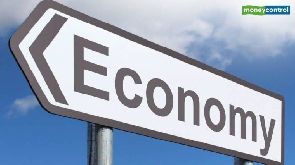Businesses were on November 8, 2022 entreated to see the economic crisis as an opportunity to grow.
According to Dr. Alhasan Andani, former CEO of Stanbic Bank, “Businesses and entrepreneurs should use a crisis as an opportunity to grow and learn from their mistakes”.
He said this at the 2022 edition of the Stanford Seed Transformation Network Ghana Chapter’s annual flagship business and leadership conference in Accra.
It is easy for business leaders and entrepreneurs to abandon the core vision and mandate of their business in their bid to survive crisis situations. The courage to stay true to your vision during crisis defines your business”.
Read the full story originally published on November 8, 2022 by thebftonline.
Speakers at the 2022 edition of the Stanford Seed Transformation Network Ghana Chapter’s annual flagship Business and Leadership conference have called for businesses to be resilient in the face of economic crisis, and see it as an opportunity to grow.
Mr. David Ofosu-Dorte, Executive Chairman at AB & David Law who gave the keynote address at the conference, urged businesses to stay true to their vision and mandate during times of crisis, saying: “It is easy for business leaders and entrepreneurs to abandon the core vision and mandate of their business in their bid to survive crisis situations. The courage to stay true to your vision during crisis defines your business”.
Dr. Alhasan Andani, former CEO of Stanbic Bank said: “Businesses and entrepreneurs should use a crisis as an opportunity to grow and learn from their mistakes”.
He encouraged participants to pay attention to crisis situations, be receptive and adaptive, and work to evolve their business while taking into account the legal and regulatory framework. “Businesses need to refine their strategies in light of changes in their markets,” he said.
The multi-stakeholder conference was the fifth in a series of conferences, and held under the theme ‘Growth Opportunities Within the Crisis’. It brought together high-level executives and thought leaders from across industries to discuss building resilient businesses by identifying opportunities during periods of economic crisis.
Globally, economies are slowing down this year and expected to slow further in the years ahead. This is due to several factors including high inflation, Russia’s invasion of Ukraine and the COVID-19 pandemic.
As a result, the global economy’s growth is expected to slow from 6 percent in 2021 to 3.2 percent in 2022 and 2.7 percent in 2023.
Ghana’s runaway inflation, coupled with weak government finances and the weakened cedi, is harming the country’s economy. Businesses and entrepreneurs are struggling to stay afloat in this crisis, which is causing some to fold-up because they cannot meet their operating costs.
Since the COVID-19 pandemic, the Network has used its conference to share knowledge and expertise on how members and the general business community can leverage on the challenges presented by crisis to identify opportunities for growing their business.
The conference is part of the Network’s strategy to connect members with industry experts and their peers, in order to help them gain knowledge that will help them stay ahead in today’s business environment.
In her remarks, Mrs. Linda Yaa Ampah (president of the Stanford Seed Transformation Network, Ghana and Founder of Cadling Fashions and KAD Manufacturing Ltd.) commended members of the Network for their resilience and ability to create and innovate in order to keep their businesses afloat during this time of economic uncertainty.
She bemoaned the current economic crisis and how it’s affecting businesses in Ghana.
“The Ghanaian business environment has become very challenging,” she said.
“There is generally high cost of doing business due to continuous depreciation of the cedi, rising cost of food and imports, a high debt burden, high inflation, high-interest rates and the rising cost of energy. These factors are expected to reduce growth in the short-term due to the current global recession.”
The private sector can help Ghana’s economy grow if government offers it the right conditions.
“Regulators and managers of the business environment need to follow discussions at the conference and provide the conditions which enable businesses to thrive and contribute even better to Ghana’s GDP by creating dignifying and fulfilling jobs for the youth,” she added.
Participants at the conference had the opportunity to network with like-minded individuals, gained new perspectives and practical strategies to upscale and transform businesses.
Business News of Wednesday, 8 February 2023
Source: www.ghanaweb.com
Today in History: See economic crisis as opportunity to grow – Businesses told
Entertainment












